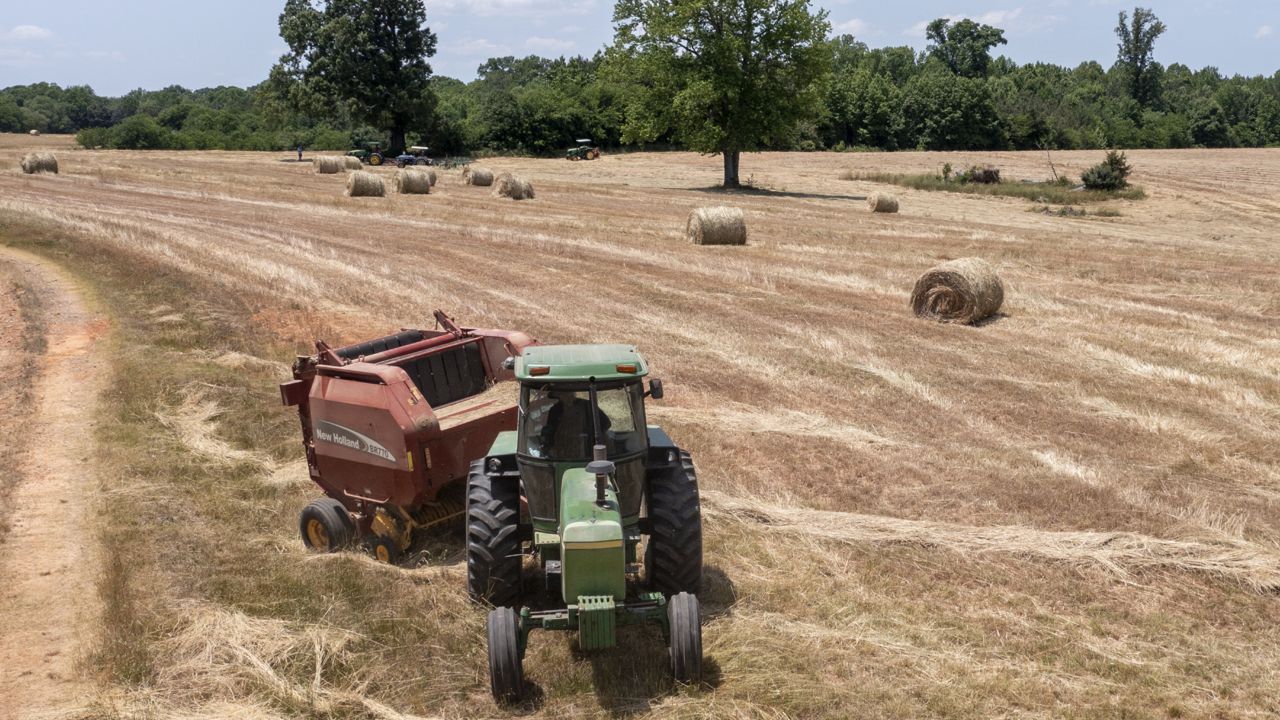The U.S. Department of Agriculture on Tuesday announced the release of $700 million to aid farmers, meatpackers and grocery store workers who continue to feel the financial impact of the ongoing coronavirus pandemic.
The vast majority of the newly-released money, funded by the Consolidated Appropriations Act of 2021, will be awarded to state and tribal governments, as well as nonprofit organizations, who work alongside meatpacking workers and farm workers across the country. The funds will be allocated in grants ranging from $5,000,000 to $50,000,000.
In order to receive a grant, eligible businesses must prove they plan on giving farm and meatpacking workers up to $600 in order to offset “expenses incurred due to the novel coronavirus 2019 (COVID-19) pandemic,” per the Department of Agriculture.
The department is also setting aside $20 million of the total sum to fund a pilot program intended to support grocery store workers, although officials did not clarify how those funds will be distributed.
“... We recognize that our farmworkers, meat packing workers, and grocery workers overcame unprecedented challenges and took on significant personal risk to ensure Americans could feed and sustain their families throughout the pandemic,” Agriculture Secretary Tom Vilsack wrote in part of the announcement. “They deserve recognition for their resilience and financial support for their efforts to meet personal and family needs while continuing to provide essential services.”
Deadlines and further requirements for grant applications will be released in “early Fall,” per the department, and applications will remain open for 60 days. Nonprofits and governmental organizations hoping to receive grants must prove their “connectedness to hard-to-reach worker populations,” and must detail how they will partner with smaller organizations to further support underserved communities.
Farm workers, meatpackers and grocery store employees — all considered essential, frontline workers — face especially high risk of contracting COVID-19 on the job.
According to a report published in the PLOS medical journal in April, the COVID-19 incidence rate is “significantly higher” in areas with more agricultural workers; every 1% increase in farm and meatpacking workers in a given county can be associated with a .04% increase in the amount of COVID-19 cases, and a .07% increase in the death rate from COVID-19.
“Results suggest counties that employ more agricultural workers, particularly hired and migrant workers, are at greater risk for COVID-19, findings which suggest these groups are at heightened risk from COVID-19,” authors Jayson L. Lusk and cRanveer Chandra wrote in part.
The study also predicted that the decrease in farm laborers due to the pandemic led to a $309 million hit to the U.S. annual agriculture output between March 2020 - March 2021.
Many farm workers are also seasonal laborers, and around half are undocumented immigrants, according to the U.S. Department of Labor. That means they are even less likely to have health insurance than their documented co-workers and face higher rates of financial insecurity.
The federal government has yet to detail how, if at all, they plan on distributing or awarding relief funds to undocumented immigrants working as farm laborers or in the meatpacking industry. Spectrum News has reached out to the Department of Agriculture for comment.
The meatpacking industry, in particular, took a severe hit during the early days of the coronavirus pandemic.
Last spring, major outbreaks at a number of meatpacking plants — where workers often stand should-to-shoulder on production lines — forced them to close temporarily because of the number of illnesses and to install additional safety measures. Across the industry, production fell as low at 60% of capacity in April at the height of the plant closures before rebounding to near normal levels over the summer.
Even as more and more employees get their vaccinations, meat companies will have to continue to rely on the safety measures they took since last spring. After the outbreaks began, meat producers tried to protect workers by instituting temperature checks and wellness screening, installing plastic dividers between workstations, increasing plant sanitization, conducting random virus testing, and requiring masks and other protective gear. In some cases, companies upgraded their plant ventilation systems.
The Associated Press contributed to this report.










